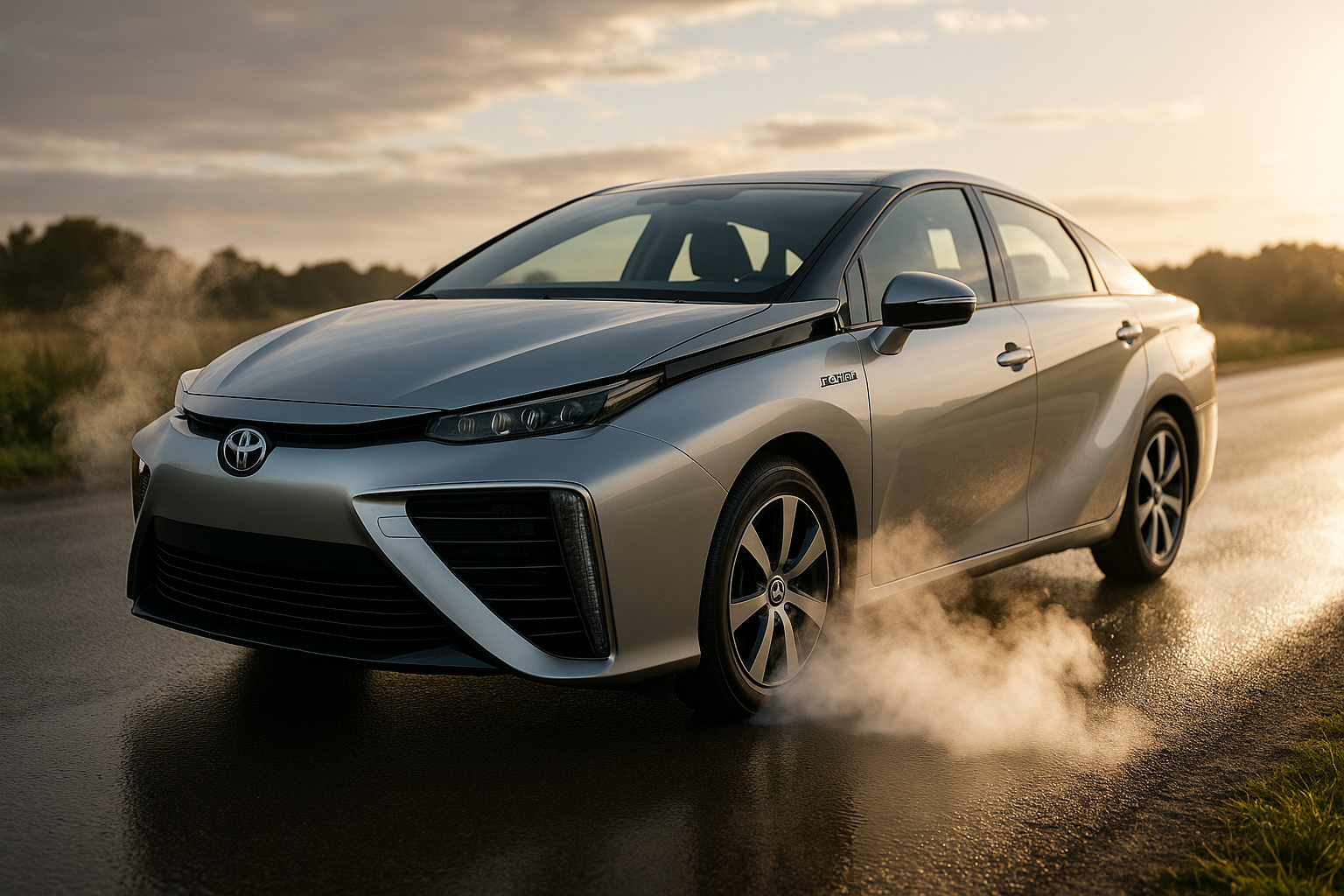The Ascendancy of Hydrogen Fuel Cell Cars: A New Era in the Automotive Industry
Introduction: Imagine a world where cars emit nothing but water vapor. Sounds utopian, right? With the rise of hydrogen fuel cell vehicles, this could soon be an everyday reality. This article delves into the evolution of this technology, its current trends, and the potential it holds for the future of transportation.

A Brief History of Hydrogen Fuel Cell Technology
Hydrogen fuel cell technology isn’t a new concept. Its roots trace back to the 19th century when Sir William Robert Grove invented the fuel cell. However, it wasn’t until the last few decades that this technology found its application in the automotive industry. General Motors unveiled the first hydrogen fuel cell vehicle, the Electrovan, in 1966. Despite its impressive performance, the high cost and size of the fuel cell system made it impractical for commercial use. Fast forward to the 21st century, automakers like Toyota, Honda, and Hyundai have made significant strides in developing efficient and marketable hydrogen fuel cell cars.
The Driving Force behind Hydrogen Fuel Cell Vehicles
Hydrogen fuel cell vehicles operate on a simple principle: they convert hydrogen gas stored in high-pressure tanks into electricity that powers the car’s motor. The only by-product of this process is water vapor, making these vehicles a beacon of hope for a zero-emission future. As the world grapples with the escalating climate crisis, the allure of a clean, renewable energy source is hard to ignore.
Current Trends and Industry Insights
While still in its infancy, the hydrogen fuel cell car market is growing steadily. Experts predict a surge in demand driven by increasing environmental consciousness and supportive government policies. However, challenges such as the lack of hydrogen refueling infrastructure and the high cost of hydrogen production persist. These hurdles, while significant, are not insurmountable. With continued investment and innovation, the industry can overcome these obstacles and propel hydrogen fuel cell cars into the mainstream.
Impact of Hydrogen Fuel Cell Technology
The potential impact of hydrogen fuel cell cars extends beyond environmental benefits. This technology could revolutionize the energy sector by creating a sustainable, decentralized energy system. Excess power from renewable sources could be stored as hydrogen and later used to generate electricity, thus addressing the intermittency issue of renewables. Moreover, as fuel cell systems become more compact and affordable, they could find applications in other areas such as public transport and power backup systems.
Looking Ahead: The Road to a Hydrogen Economy
As we stand on the cusp of a new era in the automotive industry, the future of hydrogen fuel cell cars holds promise. With advancements in hydrogen production methods and fuel cell technology, these vehicles are poised to become a viable alternative to traditional internal combustion engine cars. However, for this vision to become a reality, sustained effort from automakers, governments, and society at large is necessary. As we journey towards a sustainable future, hydrogen fuel cell cars could very well be the vehicle that drives us there.
The rise of hydrogen fuel cell cars is an exciting development in the automotive world. With their potential to transform our transportation and energy systems, they symbolize a significant step towards a sustainable future. As we continue to innovate and push boundaries, the automotive industry’s landscape will continue to evolve, offering us new ways to move, live, and interact with our environment. The journey is just beginning, and the road ahead is full of promise.




